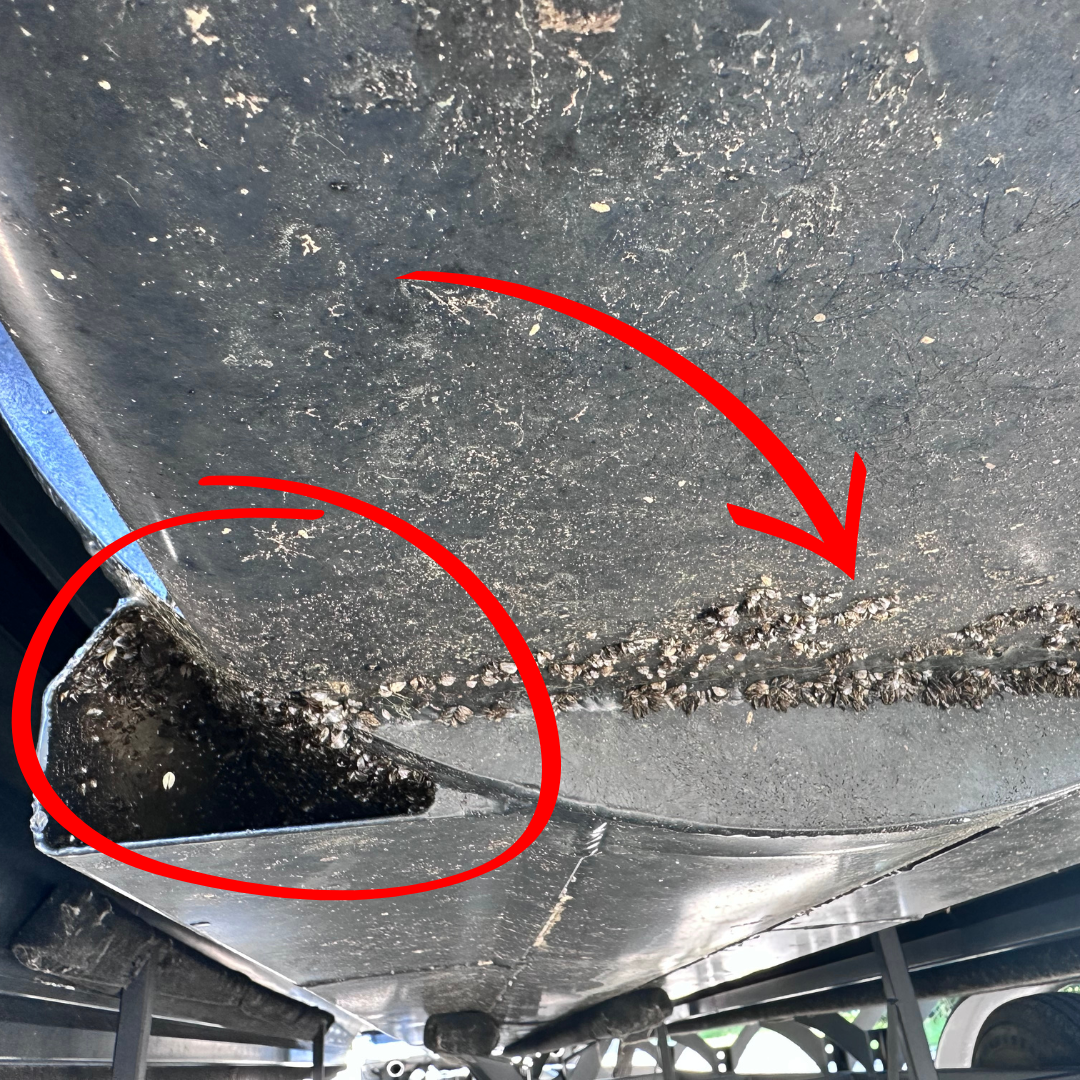By PAULA TRACY, InDepthNH.org
CONWAY – A $300,000 state contract to protect New Hampshire lakes from the spread of invasive species this summer has resulted in a “save” of Conway Lake from an invasive species.
Located in Carroll County, Conway Lake is a 1,316-acre water body with a depth of 45 feet, located just south of Route 302 near Easton.
Judy Capreralla, a Lake Host with NH LAKES for nine years, was able to identify zebra mussels on the hull of a boat in early August.
The pontoon boat, which arrived at the Conway Lake launch from Lake Zoar in Connecticut, was inspected by Capreralla after the boater volunteered to participate in a look and she found zebra mussels hiding in all the nooks and crannies of the pontoons.
The New Hampshire Lakes Association, which received the grant for the program after some push back about their lobbying efforts in support of limiting wakeboard use, said the “save” of Conway Lake would not have happened without the Lake Host program.
The boat never entered Conway Lake.
New Hampshire has had zebra mussel scares in the past, and our lakes continue to be vulnerable.
“We’re relieved that Judy was at the ramp that day,” said Brea Arvidson, NH LAKES director of programs. “A zebra mussel infestation in pristine Conway Lake would be devastating.”
These freshwater mussels have an extremely high reproductive rate of 30,000 to 1,000,000 new mussels per year and can reproduce at one year of age. They quickly accumulate and cover boat hulls, motors, and most hard surfaces, including docks and rocky lake bottoms. They can foul motors and water intake pipes, and their razor-sharp shells make it unpleasant and dangerous to walk in the water.
Capreralla is one of over 600 Lake Hosts throughout the state.
They also look for aquatic invasive plants such as milfoil.
Since its inception in 2002, Lake Hosts have inspected nearly 1.6 million boats and made over 1,500 “saves.”
In March, the state’s Executive Council and Gov. Chris Sununu engaged in a lengthy debate about funding the Lake Host program, not for its merits but for the organization receiving it and its lobbying.
But in the end, the Executive Council unanimously approved the almost $300,000 contract.
Executive Councilor Joe Kenney of Wakefield, a Republican, who is running for re-election said, “If they are supporting legislation in the legislature that is going to take away personal watercraft and types of boating activity and probably ultimately boating, so yeah, if you want to eliminate any body going into the lake you are going to eliminate milfoil, perhaps, unless wildlife brings in milfoil from the sky or whatever, that I just think this organization should really stop and think about what they are doing because they are asking for public moneys for public lakes and at the same time they want to take away public enjoyment of that.”
The state’s lakes would be left vulnerable this summer if the contract was not signed, said Executive Councilor Cinde Warmington, a Concord Democrat who is running for governor.
“I think this particular activity is important in protecting our lakes,” Warmington said.
Commissioner of Environmental Services Bob Scott and Rene Pelletier, DES water division director, agreed.
“It’s apples and oranges,” said Pelletier of the advocacy and the contract.
“All the money that we fund to them is for water quality,” he said.
Executive Councilor David Wheeler, a Milford Republican who is running for re-election, asked if any other organization could do the work of the Lake Host.
Scott said they were the only bidder and this is specialized work.
Kenney said if there was a neutral group overseeing lakes, he would have no problem supporting the contract.
The bills related to wake surfing did not pass but are likely to resurface next year.
“I heard them testify in the House,” Pelletier said of NH LAKES, “But my point is that the money we give to them all goes to water quality and they do a great job at it. And I think we would be sorely remiss to move away,” he said. He said they have been doing it for years and making a big difference in lake quality.
Sununu, a Republican who is not seeking another term, said he “completely agreed” with Kenney.
“They are taking money from the boaters to clean the lake up but at the same time on the right hand side, the left hand is trying to get rid of these motorized (vessels)…which is a problem,” Sununu said.
Andrea LaMoreaux, executive director of NH Lakes said the governor is wrong and that the organization is not about eliminating specific types of watercraft from the state’s nearly 1,000 water bodies.
She wrote that during summer 2023, a $295,000 DES contract leveraged an additional $759,385 in support of protecting lakes from the spread of invasive species.
Lake hosts have “captured more than 1,600 pieces of invasive species hitchhiking on boats and have resulted in innumerable additional saves of invasive species by teaching boaters to always take the time before and after boating to clean, drain, and dry their boats, trailers, and gear.”
She concluded “no funds from the contract we have been awarded by the DES to help support our statewide aquatic invasive species prevention work are used to support our advocacy work.”
A link to the Lake Host Program, which is on more than 300 water bodies, is here https://nhlakes.org/lake-host-resources/





